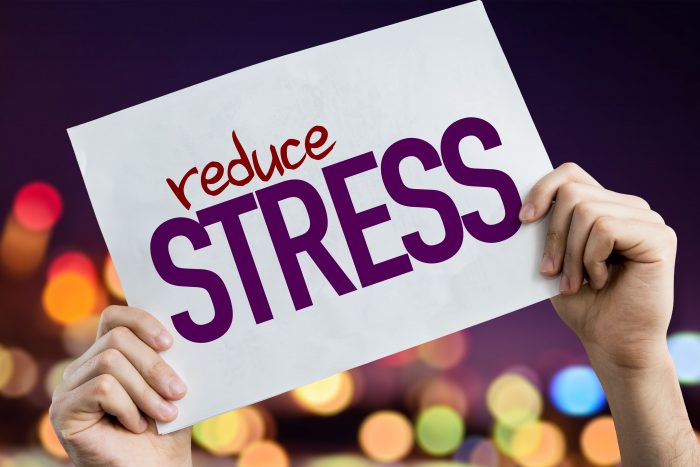National Stress Awareness Day November 7th

Improve upon your stress care routine!
We often talk about physical illness. We discuss the health conditions of our family and friends when they are not doing well. If we are sick, we are comfortable talking to others about our symptoms.
Why is it, then, that there is a taboo on mental health? Typically, we keep the state of our mental health where it starts–in our minds.
In reality, though, the health of our brain affects every aspect of our lives. The World Health Organization defines mental health as “a state of well-being in which every individual realizes his or her potential, can cope with the normal stresses of life, can work productively and fruitfully, and is able to contribute to her or his community.”
Good health does not just relate to physical health; our mental state of mind plays a huge role in overall health. Stress, in particular, can have a huge impact on our well-being.
We all want to be healthy; physically and mentally. Become aware of your own response to stress and discover new coping mechanisms to nurture your mind and promote a better general well-being.
What exactly is stress?
The website health24.com defines stress like this: “Stress is the physiological, psychological, emotional and behavioral response of a person seeking to adapt and adjust to internal and external pressures or demands.” In other words, stress is your body’s response to external demands. It is the feeling that comes with being under pressure.
How do we respond to stress?
Everybody responds differently. For some people, stress is much more difficult to cope with than others. As a result, there are both positive and negative ways people use to cope with stress. Also, we respond to stress both physically and mentally. For some people, the brain responds to anxiety in a way that leads to anxiety disorders.
What is the body’s response to stress?
Believe it or not, our mentality affects our physical body. According to Medical News Today, the physical response to stress includes “sweating, pain in the back or chest, cramps or muscle spasms, fainting, headaches, heart disease, high blood pressure, lower immunity against diseases, muscular aches, nervous twitches, pins and needles, sleeping difficulties, stomach upset.” Without the proper care of your stress, your body can suffer.
What is the mind’s response to stress?
Medical News Today states how stress affects us emotionally: “anger, anxiety, burnout, concentration issues, depression, fatigue, a feeling of insecurity, forgetfulness, irritability, nail-biting, restlessness, sadness.”
What are positive and negative coping mechanisms?
Examples of positive coping mechanisms are exercise, proper diet, meditation, and deep breathing. Examples of negative coping mechanisms are overeating, oversleeping, excessive consumption of alcohol, withdrawing from friends/family.
What is a stressor?
Stressors are the specific things that trigger stress. This is a list of the types of stressors: change, emotional, family, environmental, work, emotional, decision, physical, pain, and more.
How do we identify stressors?
Know your body’s response to stress. For example, your heart may start beating rapidly, or your chest might get tight when you are experiencing stress. At the first indication from your body that you are experiencing stress, identify exactly what caused that feeling. For example, if you feel overwhelmed by your workload, you may start to feel stressed.
Knowing your stressors is the first step to taking control of the stress in your life. Knowing what causes stress and how it impacts our body and mind can help us begin to reverse the control stress has over our well-being.
Be mindful of using stress-care techniques.
- Change your perspective. Remind yourself that there are things you simply cannot control. The things that you can control will unravel the way they are supposed to over time. In this moment, what can you do? If the answer is nothing, take a deep breath. As you exhale, imagine you are releasing the stress you feel.
- Be mindful of the way stress is affecting your health. If you know there is a serious impact on your health, make a conscious effort to work through the stress.
- Take care of yourself. Nurture yourself. You deserve to have a balanced general well-being. To nurture yourself, you can take yourself away from the stressors. Take a bubble bath. Take a day to spoil yourself. Remind yourself how valuable you are.
- Have patience with the outcome of your life. There is no sense in getting worked up over a problem that cannot be solved until tomorrow.
- Remind yourself of your past accomplishments. You have made it so far from where you started. You have successfully conquered task after task, and whatever is demanding your time and efforts now will also be conquered.
- Don’t forget how capable you are.
- Give yourself a pep-talk.
- Your brain responds to your thoughts. If you allow an aspect of your life that is causing stress to control your thoughts, you can begin to damage a part of your brain which affects your mental health. Using positive thoughts in response to a stressful situation will protect your brain and your health.
- For example: Say your car breaks down and it’s going to cost you $1,000 to fix it. When this happens, it can be easy to send our thoughts into a downward spiral: “I’m never going to get out of this rut.” “Everything is ruined now.” Etc. Instead, tell yourself “it’s a good thing I am getting my car fixed now.” Or “I am grateful that I have a car to drive,” or, “I will get through this.”
Talk to your physician about your needs regarding your stress levels.
Do you have questions about your insurance? Find an insurance agent near you with our Agent Finder
Search All Blogs
Search All Blogs
Read More Blogs
Stocked for Love: Protecting High-Value Valentine’s Inventory with Business Insurance
Is your Valentine’s stock protected? Ensure your business insurance accounts for the massive inventory surge happening in early February.
New Life, New Responsibility: Why a February Arrival Means Updating Your Policy
Welcoming a new family member this February? It’s time to move life insurance to the top of your to-do list to ensure your child’s future is secure.
Delivering Love: The Insurance Risks of Valentine’s Week Gig Work
Delivering flowers or chocolates for extra cash this Valentine’s? Make sure your car is actually insured for delivery work before you hit the road.
Tax Prep & Protection: Ensuring Your Home Office is Fully Insured for 2026
Prepping your taxes? Don’t forget to check your home office insurance. Your standard policy might not cover your professional gear or liability.
More Than Just a Sale: The Fascinating Evolution of Presidents’ Day
Why is Presidents’ Day on a Monday? Explore the history, the politics, and the trivia behind our mid-February celebration of national leadership.
The Presidents’ Day Shutdown: Managing Risk During Holiday Closures and Sales
Closed for the holiday or open for a sale? A business guide to managing liability, employee pay, and property security during Presidents’ Day weekend.
A Presidential Legacy: Using Life Insurance to Fund Your Charitable Vision
What will your legacy be? Learn how to use life insurance to make a significant charitable impact this Presidents’ Day without depleting your current savings.
The Presidents’ Day Purchase: Navigating Insurance and Gap Coverage for Your New 2026 Vehicle
Buying a new car this Presidents’ Day? Make sure your insurance keeps up. Essential tips on Gap coverage and new vehicle replacement riders.
Water, Water Everywhere: Preparing Your Home Insurance for the Late-February Thaw
Is your basement ready for the thaw? Learn why standard home insurance doesn’t cover sump pump failure and how to add the right protection this February.
Beyond the Box of Chocolates: The Strange and Surprising History of Valentine’s Day
From Roman rituals to Victorian cards: Discover the bizarre and bloody history of how Valentine’s Day became the holiday we know today.










